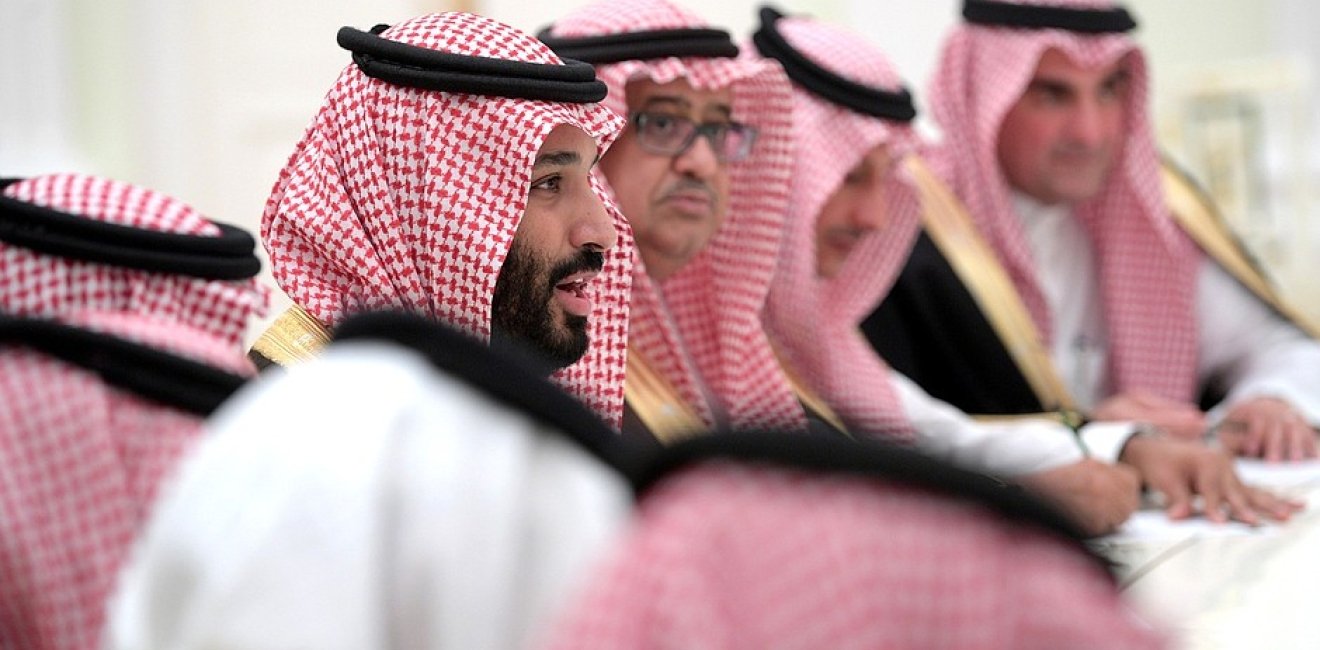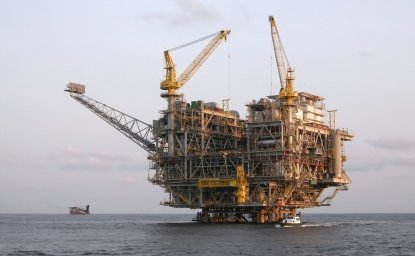Oil is once again a very sore point in an already seriously strained US-Saudi relationship. It has been so periodically ever since the United States first became dependent on importing oil in ever greater quantities in 1972. One year later, the Kingdom led an Arab oil boycott of the US in retaliation for its support of Israel in the 1973 Arab-Israeli war, creating a massive shortage and long lines at gas stations across the US.
The worst tensions have generally come during election years, both congressional and presidential ones. Practically every US president, whether Democrat and Republican, has called upon Saudi Arabia to produce more oil to make sure rising gasoline prices do not become a burning issue at the polls – just as is happening today.
These conflicting factors have made it difficult to determine whether Saudi policy is dictated by politics, economics, or possibly a mixture of both during any given US election year.
The Saudi response has varied depending on the state of the market at the time, and sometimes the state of personal relations between the US president and Saudi king. Another factor has been Saudi determination to fend off any attempt, from inside or outside, to break its leadership of the 13-member Organization of Petroleum Exporting Countries (OPEC). These conflicting factors have made it difficult to determine whether Saudi policy is dictated by politics, economics, or possibly a mixture of both during any given US election year.
Presidents and kings
The Kingdom’s changing status among oil producers makes analyses of Saudi oil policy even more confounding. For decades, Saudi Arabia on its own could pretty much dictate oil prices because it had the world’s largest production capacity, 12 million barrels a day, and remains to this day the OPEC member with the greatest space capacity: between one and two million barrels a day. This kept Saudi Arabia the undisputed “central bank” of the oil world for decades.
This preeminent status began to change at the time of the 2004 presidential elections, when President Gorge W. Bush was running against Senator John Kerry. He didn’t want gasoline prices to become an issue, so he called upon King Fahd to help him win by increasing Saudi oil production by two million barrels a day.[1] Saudi Arabia in turn called upon OPEC to collectively increase production by that amount and declared publicly it would make the entire cut on its own if other OPEC members refused to participate.[2] And so it did. But oil prices continued to rise and broke the $50 mark even as Saudi officials were declaring the market price should drop to mid-$20 a barrel.
The second shock to Saudi oil supremacy came a decade later, when American oil producers perfected a new technology for oil drilling known as fracking that suddenly propelled the US to the rank of one of the world’s top three producers, together with Saudi Arabia and Russia. Before the COVID-19 pandemic broke out in March 2020, the US had become the leader.
This presented the Saudis with a totally unexpected challenge. Since American oil producers are not subject to the dictates of the president, the only way Saudi Arabia could maintain its own clout and OPEC leadership was by making an alliance with Russia, a country where the government holds sway over both state and private energy companies. The result was the creation of an expanded alliance of producers in 2016 between OPEC and ten other producers led by Russia, known today as OPEC+. Despite initial feuding over production levels between Saudi Arabia and Russia, it has held together; its decisions are largely dictated now by Saudi Crown Prince Mohammed bin Salman (MBS) and Russian President Vladimir Putin.
OPEC’s new bosses
Whether politics or economics is dominant in the latest OPEC+ decision is somewhat murky. This is because world demand is fluctuating wildly as China’s economy goes on hold as the result of multiple lockdowns to combat the COVID-19 pandemic. China is the world’s biggest oil importer, so the market took special note when data showed it had reduced its purchases by two million barrels a day this August. Demand for Russian oil is also down from European Union nations which are boycotting it in retaliation for Putin’s invasion of Ukraine. The supply side is also in chaos. In August, OPEC+ fell 3.6 million barrels a day short of its collective production goal.
In the midst of this market chaos has come the OPEC+ decision to cut production further by two million barrels a day. Was this a political or economic decision? It was doubtlessly very bad news for President Biden and very good news for Russian President Putin. It will definitely help Russia finance its costly war in Ukraine by keeping prices high and hurt the chances of Biden’s Democratic Party at the polls in early November, as record high gasoline prices go even higher.
The current crisis has forced Western leaders to come begging MBS for more Saudi oil.
Politically, the other big winner has been MBS. He has exploited the current oil crisis to break out of his own diplomatic isolation resulting from his authorization of the murder of prominent Saudi journalist Jamal Khashoggi inside the Saudi consulate in Istanbul, Turkey in October 2018. The current crisis has forced Western leaders to come begging MBS for more Saudi oil. The suitors have included a humbled President Biden, who was obliged to end his efforts to render MBS a global pariah in retaliation for Khashoggi’s murder. He traveled there in July to fist bump MBS in a show of reconciliation that failed to come about.
The political impact of OPEC+’s decision has been considerable, highlighting the growing importance of the Saudi-Russian oil partnership as never before and the studied indifference of MBS toward Biden’s domestic troubles and efforts to patch up US-Saudi relations.
The White House put out a statement on Biden’s behalf decrying MBS’ “shortsighted decision” in light of Russia’s invasion of Ukraine and vowing to find ways “to reduce OPEC’s control over energy prices.” Biden has since promised a sweeping review of US-Saudi relations and unspecified “consequences” for the Saudi-dictated OPEC+ cut. He has also called upon American energy companies to forego some of their profits to bring down gasoline prices and declared the administration would release another 10 million barrels in November from the US Strategic Petroleum Reserve.
The cuts and the consequences
Whether these steps will make any difference remains to be seen. The Saudis still have not explained how a two million barrel cut is warranted when OPEC+ is already under-producing by 3.6 million barrels. Saudi Energy Minister Prince Abdulaziz bin Salman, MBS’ half-brother, has tried to downplay the cut, asserting the actual reduction would likely be only one million barrels because of OPEC+’s existing underproduction. For his part, Saudi Minister of State for Foreign Affairs Adel al-Jubeir insisted in a Fox News interview that “Saudi Arabia does not politicize oil or oil decisions” and that “oil is not a weapon,” just a commodity whose price was subject to many factors, which includes, according to him ,a current shortage of refinery capacity in the US.
Most of the OPEC+ cut will likely have to come from Saudi Arabia, which can most afford the lost income... The Saudi government budget had racked up a $21 billion surplus halfway through its fiscal year.
Most of the OPEC+ cut will likely have to come from Saudi Arabia, which can most afford the lost income. Saudi Aramco, the state oil company, set a record for profits the first half of this year, reaching $82 billion. (By comparison, Exxon-Mobil, the largest US oil company, earned $23.3 billion during the same period.) The Saudi government budget had racked up a $21 billion surplus halfway through its fiscal year. On the other hand, MBS has already launched a dozen “giga-projects” costing one trillion dollars; the plans to build an entire new city he calls NEOM (New Future) are expected to cost half that amount.
The actual impact so far of the OPEC+ announcement has been to achieve the Saudi-Russian economic goal of keeping oil prices at a new high of above $80 a barrel, and the political goal of imposing their joint will on all the 23 members of OPEC+, while fending off White House pressure. But a global recession, which both the World Bank and International Monetary Fund are warning of, would reduce demand and force prices down anyway. Unfortunately for Biden, this will not happen in time to help him for the November elections.
However, Biden may derive some hope still from what happened to his predecessor, Republican President Donald Trump, who had established especially close personal ties to MBS. As mid-term elections approached in 2018, Trump asked Saudi Arabia to boost its oil production after the price reached over $74 dollars a barrel. By November, after the Saudis amped up production, prices dropped to around $50 a barrel. Still, the Democrats gained 41 seats and took control of the House away from the Republicans.
The views expressed in these articles are those of the author and do not reflect an official position of the Wilson Center.
[1] David B. Ottaway, The King’s Messenger: Prince Bandar bin sultan and America’s Tangled Relationship with Saudi Arabia, pp245-246
[2] Ibid, 245






